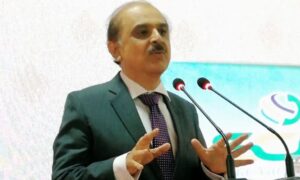Education is essential for a country’s future because it gives people the knowledge and abilities they need to make meaningful contributions to society. Education reforms are necessary in Pakistan, as they are in many other nations, to guarantee high-quality education and tackle the issues impeding the education sector’s advancement.
Pakistan has made a number of improvements to improve its educational system throughout the years. The National Education Policy (NEP), which was adopted in 2017 and attempted to address issues including equity in the educational system, quality of education, and access to school, was one notable change. The NEP implemented policies aimed at raising enrollment rates, strengthening teacher preparation, and improving the curriculum to better meet the demands of the contemporary student body.
Challenges Faced in the Education Reforms:
Pakistan is trying to modernize the education system, but there are a lot of obstacles in the way. One significant issue is the low literacy rate, which is mostly caused by social and cultural restrictions and affects women and girls in particular. Furthermore, there is a teacher shortage, particularly in rural regions, which has an impact on the standard of instruction.
In addition, Pakistan’s education system faces issues due to political instability, ineffective administrative frameworks, and inadequate financing for education. Due to these problems, there are differences in educational chances, with underprivileged and rural people suffering the most from the system’s flaws.
Improve Quality of Education:
Different measures have been implemented to raise the standard of education in Pakistan in order to solve these issues. Implementing teacher training programs to improve educators’ abilities and competences is one such endeavor. To guarantee that educators are better prepared to provide high-quality instruction, these programs concentrate on cutting-edge teaching strategies, technology integration, and pedagogical training.
Additionally, attempts have been made to update the curriculum in order to make it more pertinent and accommodating to the demands of the workforce in the twenty-first century. Science, technology, engineering, and math (STEM) courses have been prioritized in order to better educate students for the needs of the contemporary workforce.
Additionally, alliances with foreign organizations and funding agencies have been established in order to mobilize funds and knowledge in support of Pakistan’s educational reforms.
 Ministry of Federal Education Mohyuddin Ahmad Wani Monday announced
Ministry of Federal Education Mohyuddin Ahmad Wani Monday announced
Different measures have been implemented to raise the standard of education in Pakistan in order to solve these issues. Implementing teacher training programs to improve educators’ abilities and competences is one such endeavor. To guarantee that educators are better prepared to provide high-quality instruction, these programs concentrate on cutting-edge teaching strategies, technology integration, and pedagogical training.
Additionally, attempts have been made to update the curriculum in order to make it more pertinent and accommodating to the demands of the workforce in the twenty-first century. Science, technology, engineering, and math (STEM) courses have been prioritized in order to better educate students for the needs of the contemporary workforce.
Additionally, alliances with foreign organizations and funding agencies have been established in order to mobilize funds and knowledge in support of Pakistan’s educational reforms.
Education Policy
The government has adopted a new education policy, eliminating the 10 + 2 structure. The curriculum was reorganized into five parts: primary to second grade, third to fifth grade, sixth to eighth grade, and ninth to 12th grade.
- Recognize and grow each child’s potential
- Design literacy and numeracy learning among children
- Present flexible learning options
- Fund in a public education system
- Strategist quality education
- Bind children to Indian culture
- Execute top-notch research
- Teach reasonable control and empower students
- Develop a transparent Education Policy
- Emphasize the application of technology
School System
There have been significant breakthroughs in the school education scene during the past two to four years. The widespread use of smart devices and the smooth incorporation of digital technologies into education are two noteworthy developments. With the advent of cloud-based collaboration platforms and interactive whiteboards, students in 2024 have access to a wide range of materials that improve involvement and engagement.
The broad acceptance of online schooling was sparked by the COVID-19 epidemic. study management systems, video conferencing technologies, and digital textbooks have been used by schools worldwide to enable remote study in the event of lockdown. This change guaranteed the continuation of education while laying the groundwork for a more adaptable and technologically advanced learning environment in 2024.
Moreover, customized learning experiences have been greatly aided by artificial intelligence (AI). Personalized learning environments track each student’s progress individually.
Conclusion:
To sum up, improvements in education are necessary to guarantee that Pakistan’s educational system satisfies the requirements of its heterogeneous populace and equips people to prosper in the globalized world. Notwithstanding the obstacles encountered, notable progress has been achieved in augmenting the quality and expanding the reach of education via diverse reforms and endeavors. However, to get over the remaining obstacles and establish a more inclusive and equitable education system in Pakistan, persistent work and funding are required.



